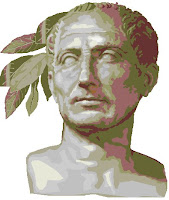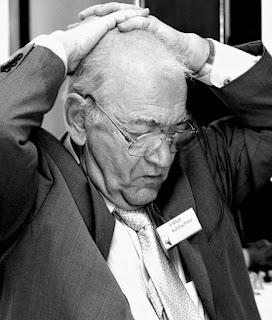The Jerome Family - 1

It was a small town but it had one big attraction for Leonard: the Hall sisters. These sisters were Indian looking and rumors were that their grandmother had been raped by an Iroquois.
His brother and him both came calling. Leonard fell for Clara. Eventually both brothers married the sisters.
With Clara’s money, Leonard bought the Rochester Daily American. He was restless. He bought a telegraph company, too. In 1850 he quit the law firm, sold the newspaper, and moved the family to Brooklyn.
New York City satisfied Leonard Jerome’s desires. He immersed himself in the nightlife, the gambling, the racing, and the women. He befriended August Belmont, the American representative of the Rothschild banking empire. Clara stayed home and silently suffered.
Leonard could not see why his day life couldn’t be as exciting as his night life. He sold the telegraph company and plunged into the stock market. He sometimes combined business and politics. In the New Haven railroad scandal, he lobbied for and got a bill for railroad reform. This bill enabled him to get out of it a winner. “That damned fellow has figured out how to cash in on honesty!” a competitor cried.
In 1851 he was appointed U.S. Counsel to Trieste. Located between Italy and the Balkans, it was the Austrian Empire’s only seaport. In Europe, Clara got her first taste at a happier life. Europe’s elites did not impress the thoroughly American Leonard. “It is better to speak well in just one language than to chatter in five,” he said.
In 1853 he returned the family to the more adventuresome venue of New York City. There he met and fell in love with one of the most famous singing stars of the century, Jennie Lind. When his second daughter was born, on January 9, 1854 he insisted on naming her “Jeannette”. Months later Clara learned that her baby had been named after this other woman.
In 1859 he built his dream mansion on the southeast corner of 26th. Street near Madison Square. Clara had it designed in the best Napoleonic Paris style. It rose six stories high. The white and gold ballroom accommodated three hundred; the dining room seventy. Leonard’s attention was on the secondary buildings. His stable cost $80,000. Next to it his theatre seated six hundred.
At this time other wealthy families were building homes in the area. Delmonico’s Restaurant made its debut. So did the Fifth Avenue Hotel. It sported impressive innovations: a central heating system, “a perpendicular railway intersecting each story” (i.e. an elevator), and most startling of all – indoor toilets. Critics called them “not only unsanitary but immoral.”
The Civil War showed Leonard Jerome at his best. To seven year old Jennie Jerome, “I remember nothing about it, except that every little Southerner was ‘a wicked rebel’ to be pinched if possible.”
Leonard acquired a part interest in the New York Times. At the height of the Draft Riots in July 1863 he grabbed the latest in military hardware, a pair of gatling guns, and mounted them in the Times Building’s windows. The mob departed for easier pickings at the Herald Tribune.
Leonard made and lost enormous amounts of money. His womanizing and his gambling became increasingly notorious. As in business, he did not always win his battles. One day, while eating with his friend Belmont, he asked, “August do you remember Fanny’s celebrated ball?” Belmont replied, “Indeed I do. I paid for it”. Leonard slowly said, “Why, how very strange. So did I.”
“People like Belmont and Jerome do not enter Society, they create it as they go along,” a contemporary wrote.
They founded the American Jockey Club, an important event in the history of horseracing. They built the Jerome Racetrack, with seating for eight thousand, a luxurious clubhouse, with dining rooms, guest rooms, a ballroom, and facilities for other sports such as skating, trapshooting, polo, and sleighing. It was the biggest sports facility in the country up to that time.
Distinguished guests such as Ulysses Grant attended opening day on September 25, 1866. Leonard’s horse Kentucky won and in the winner’s circle twelve-year-old Jennie was hoisted on top of him. With the crowd’s applause flowing around her, it was one of the most memorable moments of her life.
Leonard’s play became larger. How about a race across the Atlantic, with a cool $90,000, winner takes all? It was done. He held the victory party at the Royal Yacht Squadron at Europe’s most famous resort, Cowes, on the English Channel.
By 1867 Clara had had enough. She took the children and left for Paris.
---------------------------------------------
Excerpt from a book in progress. Churchill Stories. (from Chapter 1.)

















